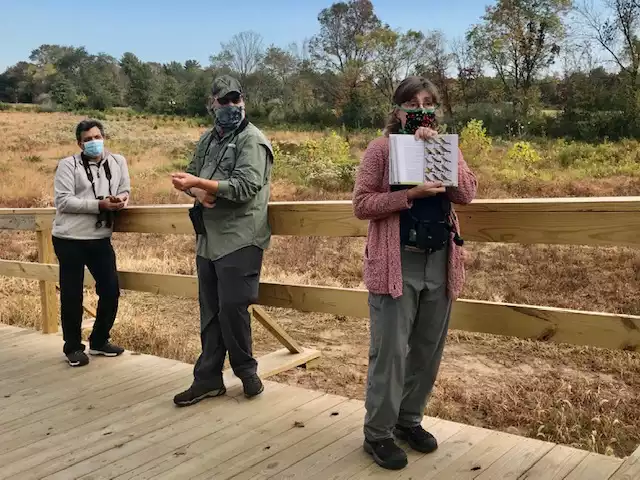
To extend our community outreach, the library partners with the many municipal, non-profit, and business organizations that make Princeton such an extraordinary town. This month, we spoke with Anne Brener, executive director of Princeton Adult School.
As the library’s community engagement coordinator, and a former member of the board of Princeton Adult School, I can speak to some of the ways the shared missions of PAS and PPL complement each other. The library works to make information accessible to all and to collaborate with our community to help with 21st century literacies. We offer a wide variety of free public programming to provide our community the opportunity to explore new interests. Princeton Adult School also offers a wide variety of programming – but invites a deeper dive in the more formalized classroom structure. A longtime favorite PAS program has been the “big lecture series.” PAS takes a theme and then offers a number of excellent lectures that explore the topic from a wide variety of angles.
How long has Princeton Adult School been in Princeton?
Princeton Adult School was created in 1939 by two women living on Jefferson Road whose husbands ran the newspaper delivery service. They wanted to emulate The Trenton Evening School with the help of president of Princeton University, the president of Princeton Theological Seminary and the superintendent of Princeton Borough Schools.
What is your primary area of focus?
Our motto of “Learning Never Ends” encompasses our wide variety of 200+ courses during our two semesters each year. We engage people in all areas of interest including learning English as a second language to perhaps a fluency in Italian or Russian or following our early history of the New Jersey area and include practical courses in investment and retirement. Delving into literature and art history, film directors and gardening are all available. We hope to enhance knowledge and joy in learning to our wider community.
How does your mission align with the library’s?
Princeton Adult School and Princeton Public Library have an overlap in interests and users of both organizations. We bring in 50% of our students from outside of Princeton itself. Partnering with the library, as we did with the 2020 election, brought local, state and national election information to many people. Steve Kornacki’s attracting over 600 people was a wonderful example of joyful partnering.
With whom do you work most in the community?
We have the pleasure of working with other non-profits and businesses in Princeton. Without the cooperation and availability of space from Princeton Public Schools, Princeton Senior Resource Center, The Arts Council of Princeton and other entities, we could not have our programs. Creating classes with Princeton Ballet, Fred Astaire, Olsson’s Foods, Willard Brothers, Elephant in the Room and local chefs enriches our class offerings.
What is something that you do that people might not know about?
In 1939, our Princeton school system was segregated. The founders of Princeton Adult School created a non-profit program that was open to all within the doors of our segregated buildings. Six hundred students came into classes from a lecture on current world problems to boil operator training that January. We have always been an independent adult education program that receives no tax dollar support. Tuition and contributions create our programs.
Is there any project or event that you are particularly excited about at the moment?
Like so many organizations that found themselves re-creating their programs, we became a virtual school in March, 2020, with the willingness of our energetic teachers. As we look forward to in-person classes in the future, we know that certain classes are welcome online for those who are not driving in the evening or enjoy sitting in a favorite chair and connecting with our great teachers. Online courses are limited in class number to allow for interaction with students. Did you think you could learn to play the mandolin online or knit a Celtic cable neck-warmer? Or take an improv class with a transplanted Princeton teacher who is now in Texas? We will find a balance but know that we ultimately want to be together. Outdoor groups followed all protocol but were able to learn about tree identification, use iPhones for outdoor photography, paint en plein air and enjoy forest therapy walks.
Photo courtesy of Anne Brener
